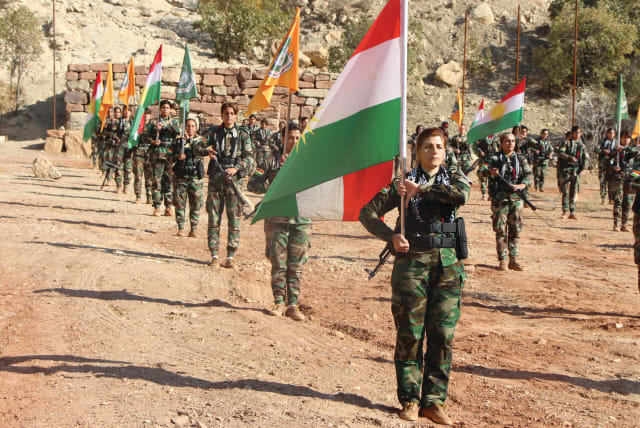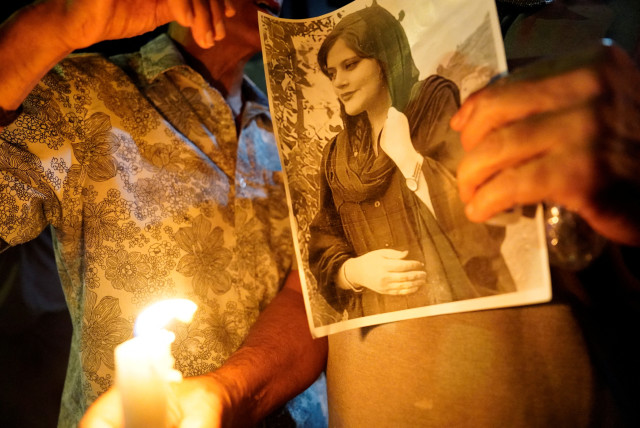Why is Iran’s regime so afraid of Kurdish dissidents? - analysis

Iran has tended to believe it can oppress minority groups in specific ways and that the groups will not unite in protest at the same time.
There has been an increasing crescendo of media coverage in Iran targeting Kurds and Kurdish dissidents over the past several weeks.
The latest example is an article published by the semi-official Tasnim News Agency, which is associated with the Islamic Revolutionary Guard Corps. A member of the Kurdish left-leaning PJAK group sought to defend her dissertation while wearing a uniform and “without hijab,” the report said.
It was not clear from the article if the presence of the Kurdish woman in a video with her hair showing, or her supposed link to PJAK, was more important. The regime clearly sees all these issues as entwined and a threat. Part of the threat is that Kurds are a large minority in Iran, and they tend to have numerous dissident groups that Iran calls “separatists” and “terrorists.”
Iran’s regime also appears to fear Kurdish women. Mahsa Jina Amini, a Kurdish woman, was killed by Iranian police last year, sparking months of protests. Iran has now targeted members of her family and the Kurdish region in general to prevent protests on the first anniversary of her death.
Iran knows that protests from minorities can spill over
The regime appears to understand that protests by minority groups may spill over to other areas. For instance, Iran is also seeking to crack down on any opposition in the Azeri region, which is in northwestern Iran. The regime has tended to believe it can oppress these groups in specific ways, and that the groups will not unite in protest at the same time.
In addition, Iran has usually prevented protests from the periphery from spilling over to the center. Last year’s protests were an exception, and the regime now seems to realize that harming female members of any of the minority groups in the country will also affect Tehran.
For that reason, the regime has increased its crackdown and threats. Articles devoted to allegations that a Kurdish woman sought to obtain a PhD while also wearing the “uniform” of a “separatist group” are one way that the media seeks to target minorities and women.
In another example, Iran continues to pressure Iraq to remove Iranian Kurdish dissident groups. There are thousands of Kurds from Iran who live in the autonomous Kurdistan Region of Iraq. Iran has increased attacks on them over the past year.
Jerusalem Post Store
`; document.getElementById("linkPremium").innerHTML = cont; var divWithLink = document.getElementById("premium-link"); if (divWithLink !== null && divWithLink !== 'undefined') { divWithLink.style.border = "solid 1px #cb0f3e"; divWithLink.style.textAlign = "center"; divWithLink.style.marginBottom = "15px"; divWithLink.style.marginTop = "15px"; divWithLink.style.width = "100%"; divWithLink.style.backgroundColor = "#122952"; divWithLink.style.color = "#ffffff"; divWithLink.style.lineHeight = "1.5"; } } (function (v, i) { });

